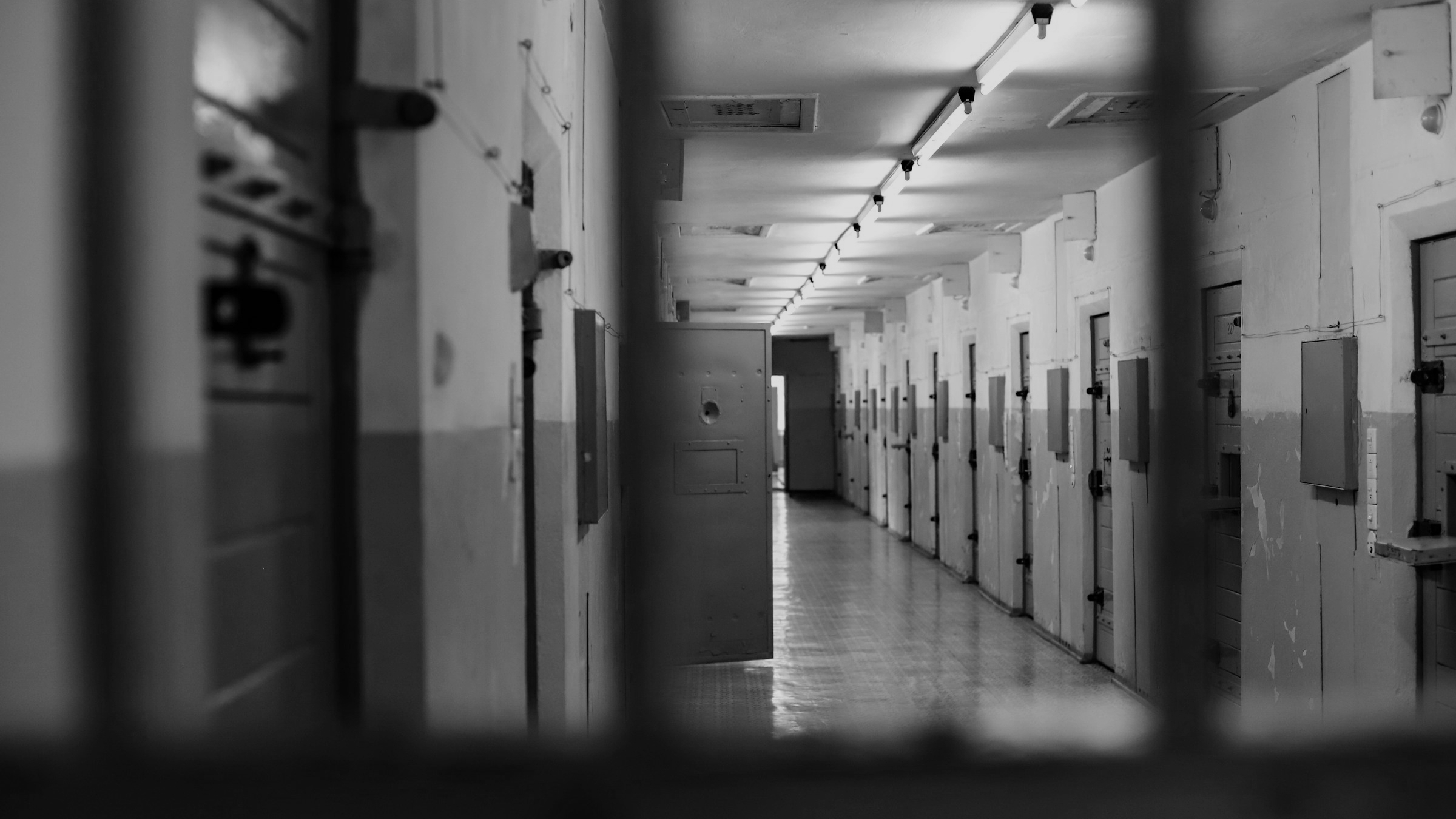The fact that you have committed a crime and have been formally accused of it does not mean that you will be convicted – and therefore, you will have to submit to a severe penalty. In certain situations, it is possible to conditionally discontinue criminal proceedings, which will not only protect you from the negative consequences of the prohibited act you have committed, but above all, guarantee you the status of a person with no criminal record.
The essence of conditional discontinuation of criminal proceedings comes down to suspending the imposition of a penalty, as opposed to suspending the execution of the penalty.
In this article you’ll learn:
- What is a conditional discontinuation of criminal proceedings?
- When can it be applied?
- Who can apply for conditional discontinuance?
- Which authority decides on conditional discontinuance?
- How to write an application for conditional discontinuance?
- What are the outcomes of conditional discontinuance?
- FAQ
When is conditional discharge possible?
Unfortunately, you must be aware that the institution of conditional discontinuation of criminal proceedings can only be used in exceptional cases.
First of all, it is an absolute requirement that your guilt in committing the crime and its social harmfulness are insignificant. Moreover, there can be no doubt as to the circumstances in which you committed the prohibited act, and the offense itself was not subject to a penalty exceeding five years’ imprisonment. In addition, you must be a prospect of the so-called positive criminological prognosis. Finally, the last condition is that you have not previously been convicted of committing an intentional crime..
The fulfillment of the above-mentioned requirements is an absolute condition for the possibility of applying conditional discontinuity. Moreover, they must occur together, and therefore simultaneously – at the same time.
When the degree of your guilt as a perpetrator of a crime will be assessed, it will take into account primarily whether you acted intentionally and what were the motives for committing the prohibited act.
In turn, when examining the social harmfulness of the act you have committed, the Court will be guided by specific guidelines contained in the regulations. In this respect, it will carefully analyze the following:
- the type and nature of the goods you violated,
- the extent of the damage caused or threatened,
- the manner and circumstances of committing the act,
- the importance of the obligations you have violated,
- the form of your intention – your motivation, the type and degree of your violation of the rules of caution required to act in a given situation.
Conditional discontinuation of criminal proceedings vs. previous convictions
As I mentioned earlier, in order for conditional discontinuance to apply to you, you must not have been previously convicted of an intentional crime, and this also applies to acts of lesser gravity, i.e. those whose consequences did not result in serious consequences (penalties). In other words, a previous conviction for an intentional crime precludes conditional discontinuation of the proceedings. A conviction for an unintentional crime does not prevent the application of this institution, provided that the remaining conditions are met.
This therefore includes people who have not only never been charged with a crime, but also those who were acquitted as a result of criminal proceedings. This also applies to persons against whom the court refrained from imposing a penalty.
This also applies to those against whom criminal proceedings have been discontinued, also in the event of amnesty or abolition, as well as in the event of prior application of only protective measures, conditional discontinuation of criminal proceedings or the imposition of only disciplinary penalties. Also, if only educational or corrective measures were previously imposed on you, this does not constitute an obstacle to conditional discontinuation of criminal proceedings.
Your previous criminal record for an intentional crime does not prevent you from doing so, if your conviction has already been expunged.
When it comes to excluding the possibility of conditionally discontinuing the proceedings if the act you committed is punishable by more than five years of imprisonment, it is worth noting that it is not about the amount of the penalty imposed by the Court in a specific case, but about the amount of the statutory minimum. Therefore, if in your case concerning an act for which the penalty is more than 5 years of imprisonment, and the court imposes, for example, 3 years of imprisonment, it will not be possible to conditionally discontinue the proceedings against you.
Conditional discontinuation of criminal proceedings – positive criminal prognosis
Finally, you will be able to take advantage of the option of conditionally discontinuing criminal proceedings only if there is a positive criminological prognosis for you. What does it mean?
Well, in the opinion of the Court, your characteristics and personal conditions as well as your current way of life must justify the assumption that despite committing a prohibited act, you will obey the legal order in the future and, in particular, you will not commit a crime again.
Personal qualities come down to your character traits. This means that your disposition, emotionality, moral principles and the “action” or “non-action” of conscience will be analyzed in this respect.
On the other hand, personal conditions refer to the social conditions in which you function, especially your surroundings. This concept covers primarily your environmental, family, housing and work-related conditions.
In the above context, the attitude you present towards your reprehensible behavior is particularly important, i.e. whether you sincerely regret it, whether you have repaired or at least tried to repair the damage, etc. The following circumstances will be in your favor:
- reconciliation with the perpetrator,
- compensation for the damage caused,
- appropriate compensation to the aggrieved party for the injury suffered,
- compliance with the legal order.
Oh, one more thing! You don’t have to worry that admitting guilt will make your situation worse. Quite the opposite! Firstly, a situation in which the accused person fully confirms his/her guilt does not constitute any obstacle to conditionally discontinuing the proceedings. Secondly, pleading guilty and cooperating with law enforcement authorities will undoubtedly contribute to explaining all the circumstances in which you committed the prohibited act, and this, in turn, is one of the grounds for the Court’s application of this institution.


Everyone is equal before the law. Effective lawyer makes the difference
Who can apply for conditional discontinuance of criminal proceedings and who applies it?
The application of conditional discontinuation of criminal proceedings is solely at the discretion of the court that hears your criminal case.
No other body has the authority to make a decision on this matter. You must also be aware that even meeting all the requirements will not guarantee that your case will be discontinued. The court has full freedom in this respect to decide whether you deserve it or not…
The application can be submitted by:
- the defendant or his/her defense attorney,
- prosecutor
The latter may refer it to court, instead of the indictment itself.
Interestingly, the applicable regulations do not specify the deadline by which such an application should be submitted. Thus, at least in theory, you have plenty time to do that! This is possible throughout the entire time that your criminal case is pending, even during your final speech, i.e. immediately before the conclusion of the court proceedings.
However, in practice, most often an application for conditional discontinuance of criminal proceedings is submitted when the trial has not yet begun, but after the indictment has been served on the party. In such a case, the court generally does not set a hearing date, but refers the case to a hearing during which it comprehensively considers the submitted application.
Your application should be properly and thoroughly justified. Therefore, you must prove beyond any doubt that all the conditions on which the possibility of applying conditional discontinuation depends, and which have been described above, have been met. It is necessary to provide appropriate evidence to support these circumstances.
What are the benefits of conditional discontinuance of criminal proceedings?
You should know that conditional discontinuation of criminal proceedings takes place for the probation period. It ranges from one to three years and runs from the date the judgment issued in this matter becomes final.
During the probation period, the court may place you under the supervision of a probation officer or a trustworthy person, association, institution or social organization whose activities include upbringing, preventing demoralization or helping convicts.
In addition, you may be subject to measures aimed at repairing the damage caused by the crime committed, in whole or in part.
The court may also order, if possible, the obligation to satisfy for the injury suffered, which also includes reimbursement of all costs incurred by the aggrieved party as a result of the injury caused to him, including, among others: expenses related to the treatment process.
Instead of the above obligations, the court may decide to award compensatory damages, consisting in the obligation to pay a certain amount of money to the aggrieved party or a social organization.
In addition, the Court may additionally impose the following obligations on you:
- informing the court or probation officer about the progress of the probation period,
- apology to the aggrieved party,
- fulfilling his/her obligation to provide for the maintenance of another person,
- refrain from abusing alcohol or using other intoxicants,
- undergo addiction treatment, in which case the convict’s consent is required,
- undergoing therapy, in particular psychotherapy or psychoeducation, the condition of which is also the consent of the convict,
- participation in corrective and educational activities,
- refrain from contacting the aggrieved party or other persons in a certain way or approaching the aggrieved party or other persons. In this case, the court also indicates the minimum distance from protected persons that the convict is obliged to maintain,
- leaving the premises occupied jointly with the aggrieved party, while determining the method of contact between the convicted person and the aggrieved party.
In the event of conditional discontinuation of criminal proceedings, the Court may also order a punitive measure in the form of a cash benefit to the Victims’ Assistance Fund and Post-penitentiary Assistance.
That’s it as far as unpleasant things go…
As for the positives, the decision to conditionally discontinue the proceedings means not only that the penalty provided for a given crime in the Penal Code will not be applied to you, but also that this fact will not be recorded in the National Criminal Register. Therefore, in the eyes of the law, you will have no criminal record!
Of course, you must remember that conditionally discontinued criminal proceedings may be resumed. To avoid this, you must comply with all the requirements imposed on you by the Court and strictly follow the rules of the legal order. But that’s another story…

